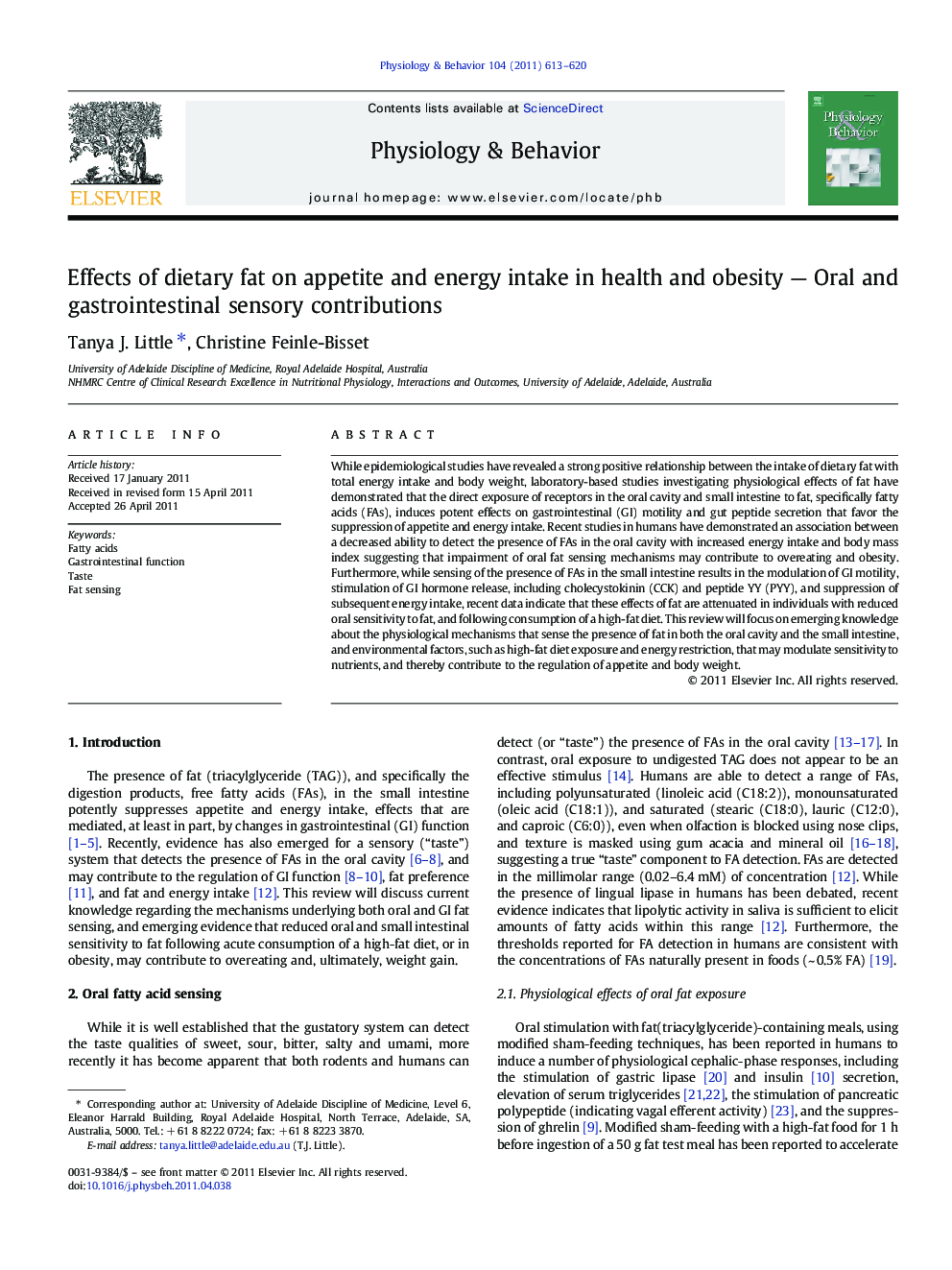| کد مقاله | کد نشریه | سال انتشار | مقاله انگلیسی | نسخه تمام متن |
|---|---|---|---|---|
| 2844756 | 1166361 | 2011 | 8 صفحه PDF | دانلود رایگان |

While epidemiological studies have revealed a strong positive relationship between the intake of dietary fat with total energy intake and body weight, laboratory-based studies investigating physiological effects of fat have demonstrated that the direct exposure of receptors in the oral cavity and small intestine to fat, specifically fatty acids (FAs), induces potent effects on gastrointestinal (GI) motility and gut peptide secretion that favor the suppression of appetite and energy intake. Recent studies in humans have demonstrated an association between a decreased ability to detect the presence of FAs in the oral cavity with increased energy intake and body mass index suggesting that impairment of oral fat sensing mechanisms may contribute to overeating and obesity. Furthermore, while sensing of the presence of FAs in the small intestine results in the modulation of GI motility, stimulation of GI hormone release, including cholecystokinin (CCK) and peptide YY (PYY), and suppression of subsequent energy intake, recent data indicate that these effects of fat are attenuated in individuals with reduced oral sensitivity to fat, and following consumption of a high-fat diet. This review will focus on emerging knowledge about the physiological mechanisms that sense the presence of fat in both the oral cavity and the small intestine, and environmental factors, such as high-fat diet exposure and energy restriction, that may modulate sensitivity to nutrients, and thereby contribute to the regulation of appetite and body weight.
Research highlights
► Oral and gastrointestinal fat sensing play an important role in the regulation of gastrointestinal function, appetite and energy intake.
► This review discusses current knowledge regarding the mechanisms underlying both oral and GI fat sensing.
► We present emerging evidence that reduced oral and small intestinal sensitivity to fat following acute consumption of a high-fat diet, or in obesity, may contribute to overeating and, ultimately, weight gain.
Journal: Physiology & Behavior - Volume 104, Issue 4, 26 September 2011, Pages 613–620